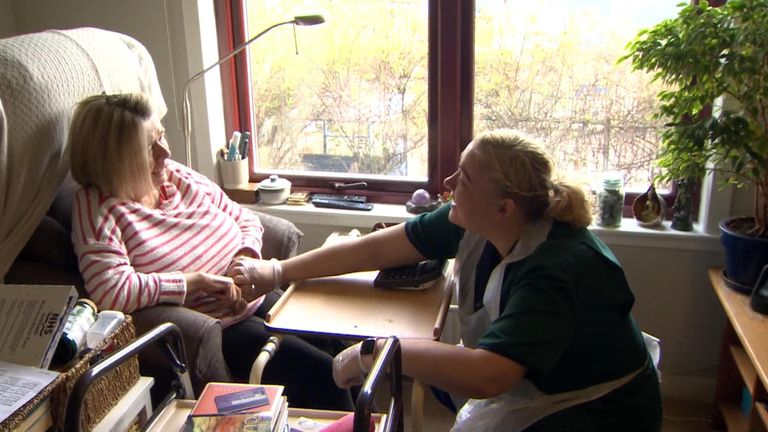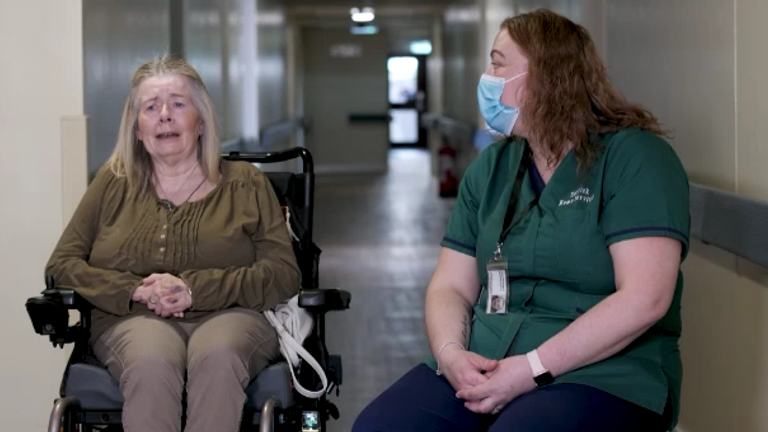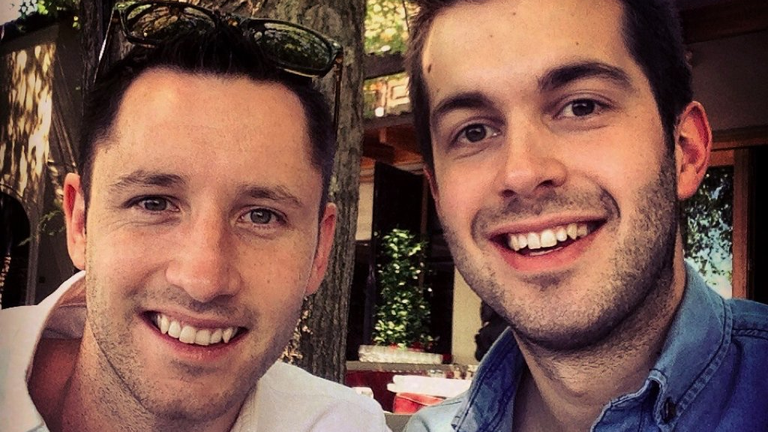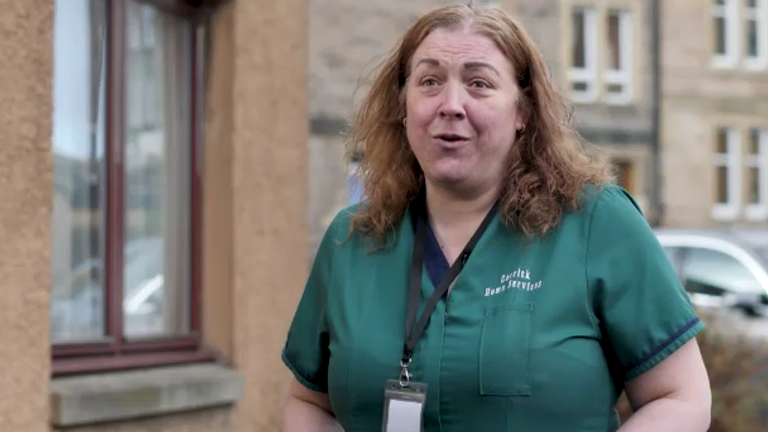Imagine living through COVID when you struggle to speak. When you struggle to say "help" or "I love you".
Barbara Durkacz has motor neurone disease. She used to be a professor and her mind remains sharp, but the neurological condition has weakened her muscles including her speech.
A year ago, before the first coronavirus lockdown, we visited her at home in Edinburgh with her carer Laura Rose, from Carrick home services.
Both were in tears as Barbara tried to explain how frightened she was of catching COVID-19.
She was worried that if she was admitted to hospital and doctors had to choose who lived and who died, she would not survive.
A year on when we returned, Barbara was smiling. But the pandemic has clearly been extraordinarily challenging.
"I felt like I was becoming a burden on society," she tells me via Laura.
Barbara says she almost became a hermit in lockdown and obsessed over the news to an unhealthy degree.
My own husband Gordon died from motor neurone disease at the age of 31.
By the end of his life he used a wheelchair, needed to be fed, and would drink through a straw.
It was this same team of carers, from Carrick home services, who looked after Gordon and over the years became our friends.
Andrea Ramsey runs the company. Her team and most of their clients have been vaccinated.
The people they look after may are less anxious now, but the pandemic has taken a toll on their confidence.
"You see the loneliness has affected their mental health," she says.
"Some of my clients were able pre-COVID to go out to shops, day centres. But all that has stopped... Some of them have lost their mobility and confidence."
Laura Rose has seen many clients with poor mental health.
"There are moods, crying, some with suicidal thoughts, not wanting to be here anymore," she says.
"I mean how do you deal with that? We are not mental health nurses or doctors, but you have to deal with it because we are all they've got. If we don't go to them, who will? Their families can't visit them."
But with an end to the pandemic now in sight, Barbara is positive.
"I feel immune", she says. "I'm ready to go out and face the world. With a vengeance."







